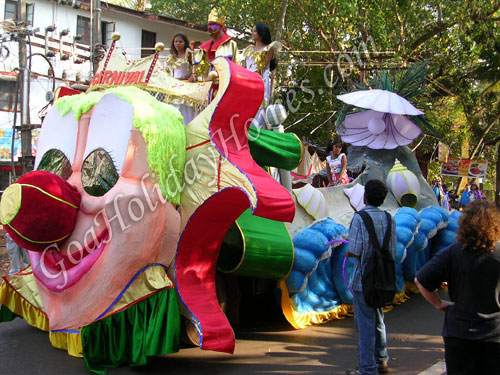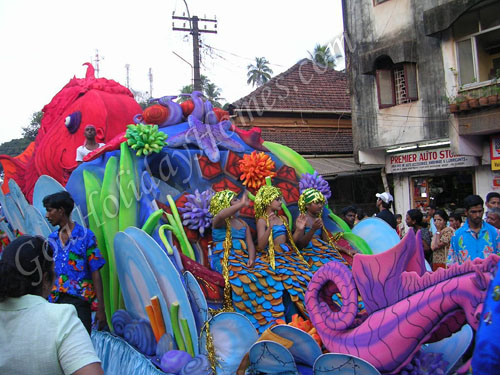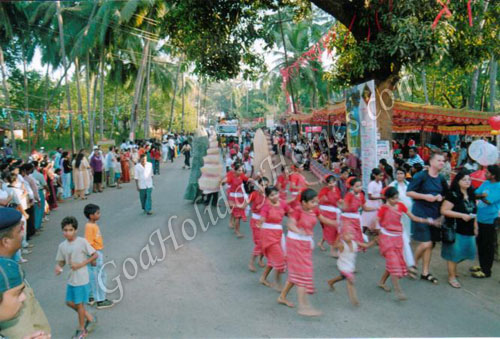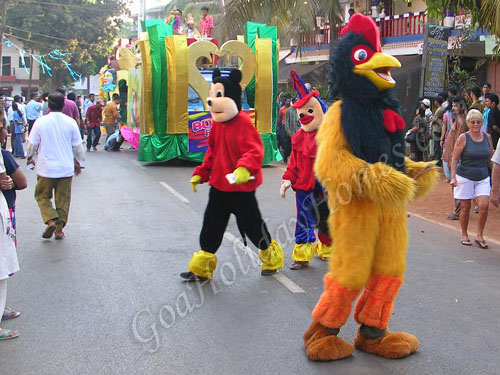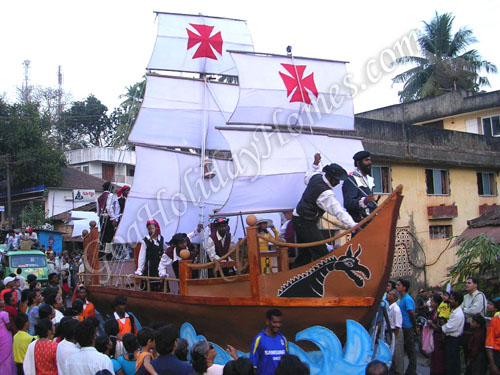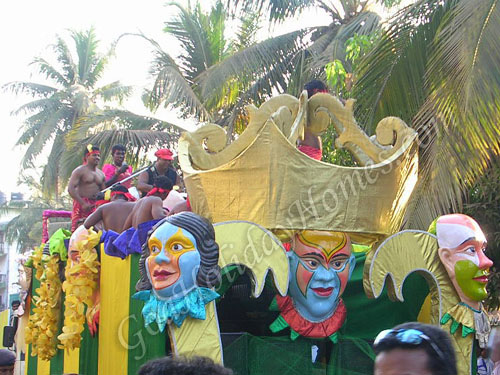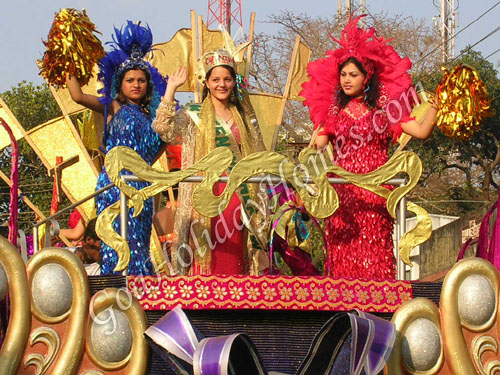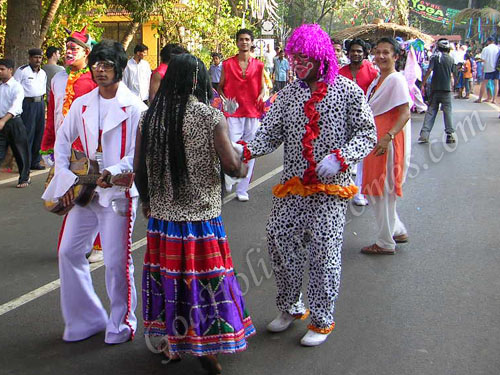Carnival in Goa
Goa Carnival is the most famous festival in the state and has been celebrated since the 18th century as a precursor to the abstinence of Lent. The 'Carnaval' is exclusive and unique to Goa, and was introduced by the Portuguese who ruled over Goa for over five hundred years.
Click here to send a greeting card to someone about Carnival in Goa.
Huge colourful parades take over the state's cities with bands, floats and dances, while the evenings mean serious partying wherever you are. Try not to miss the final day's festivities, which conclude with the famous red-and-black dance held by the Clube Nacional in Panjim.
The float parades are organised in association with the State Tourism Department. The float parade in Panaji will be led by a special float hosting King Momo, a specially decorated float, which will declare the decree of eat, drink and merry.
Although, the three-day festival is primarily celebrated by Christians, it has also absorbed Hindu tradition revelry, western dance forms, and turned into a pageantry of sorts. Though it started as a celebration enjoyed only by the local population, it has today crossed the state frontiers and attracts thousands of people from all over the country.
The carnival is held in February for three days and nights, when the legendary king Momo takes over the state and the streets come alive with music and color. Then begins the weeklong event, which is a time of unbridled festivity and merry-making, which has been celebrated since the 18th Century.
The carnival is meant to be a feasting-drinking-merrymaking orgy just before the austere 40 days of Lent. Huge parades are organized throughout the state with bands, dances and floats out all night on the streets, and grand balls held in the evenings. The crnival concludes with the famous red-and-black dance held by the Clube National in Panajim on the final day.
The origins and nature of the carnival can be traced to the hedonistic feasts of ancient Rome and Greece. These carivals started in the Spanish and Portugese colonies, and gradually became known for their singing, dancing and drinking. The carnival is presided over by King Momo, who on the opening day orders his subjects to party. Hotel bookings must be done in advance for carnival as the festival attracts thousands of tourists.
The word Carnival (Carnaval in Portuguese) is derived from a Latin word meaning 'to take away meat' and is an expression of the 40-day period of fasting of Lent, during which abstinence from meat is a rule.
The carnival is not celebrated anywhere else in India and was in decline even in Goa in the last few years of Portuguese rule. Its revival with the Liberation of Goa, and a boost to its tourism was therefore welcome. From being almost on the brink of decline, this three day festival of gay abandon and riotous revelry now attracts thousands of tourists to Goa from all over India every year!

